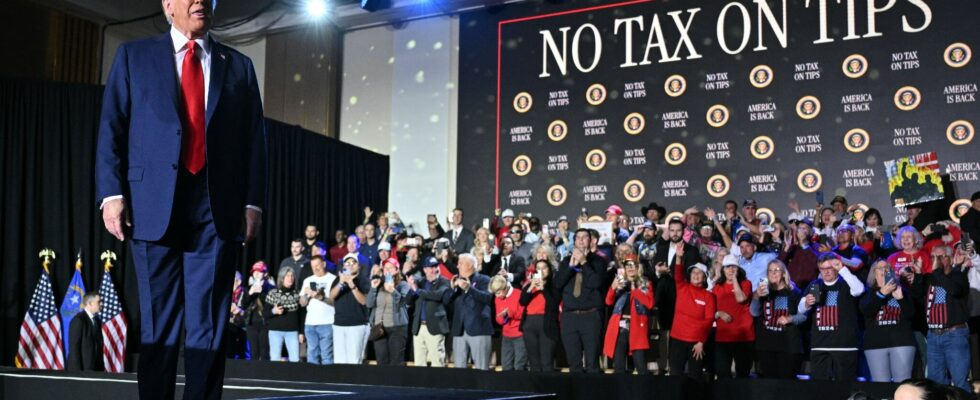It is an additional nail in the coffin of multilateralism. After getting out of the Paris climate agreement, slamming the door of the World Health Organization (WHO), blocked the Appeal Organization of the World Trade Organization (WTO), biffed agreements Free trade with his Canadian and Mexican neighbors, now Donald Trump has just denounced the international tax agreement concluded more than three years ago under the aegis of the OECD. The latter sets the framework for a minimum tax for multinationals and a fair taxation of large digital platforms.
Small flashback: in October 2021, after more than a dozen years of discussion and heights without tomorrow, 130 countries sign “the most important tax agreement for almost a century”, boasted Bruno Le Maire, then French Minister of the Economy. A major advance which must – on paper – allow both to slow down tax competition between states and to limit optimization assemblies of which tech giants love. In detail, this agreement relates to two pillars. The first must guarantee a more equitable distribution of the profits of large groups by allocating rights to tax in particular to the countries in which these multinationals exercise an activity. The second aims to introduce a minimum corporate (IS) tax (IS) of at least 15 %.
It is this last point that irritates Washington today. Because, in fact, this agreement authorizes the signatory countries to require American multinationals that they pay them a balance of tax if their tax rate in the United States is less than 15 %. Problem, their effective IS rate is now close to only 10 %. Unacceptable for tech giants, who lent allegiance to Trump, to pay the slightest dollar in additional tax. Also unacceptable for the new American president to see his new darlings of Silicon Valley caught up in a form of extraterritoriality of law. Ironically, the United States has been upset and abuse this weapon for years, taking advantage of the hegemony of the dollar to sanction individuals and businesses all over the planet. In retaliation, Donald Trump threatens to double the taxation of foreign companies in countries signatory to the agreement installed in the United States. On the front line, European and Japanese groups. After the trade war, tax war.
